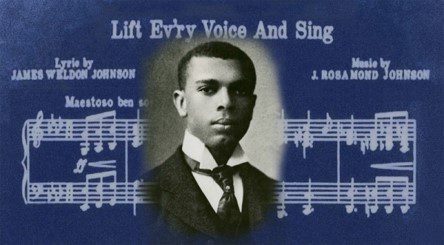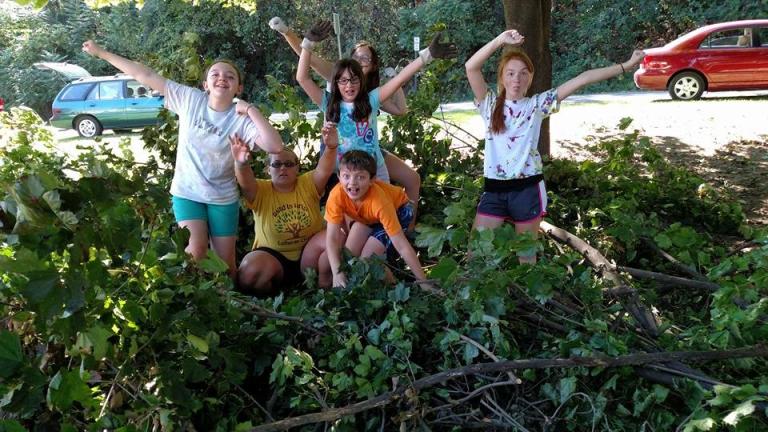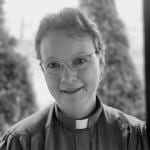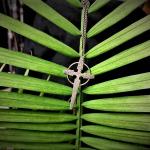Have you heard of the song “Dem Bones”? Do you know who wrote that song? James Wheldon Johnson’s story illuminates Ezekiel 37.
I was invited to preach at First Christian Church in Georgetown, Kentucky on March 26, 2023. Here is the video of that sermon: https://www.youtube.com/watch?v=dMYDMH_oxiA/. (Gospel reading begins at 22:50; sermon begins at 29:00). And here is the text.

“Dem Bones”
The man who wrote “Dem Bones” was James Wheldon Johnson. He was an African American author, activist, educator, lawyer, and diplomat who lived from 1871-1938. He wrote the lyrics for “Dem Bones” in 1928 and his brother Rosamond Johnson wrote the music. Johnson was inspired to write the song by the passage we heard today in Ezekiel 37:1-14, the vision of the valley of dry bones.
James Wheldon Johnson was truly a Renaissance man.
In addition to being a poet and writer, he studied law, served as a teacher in the segregated schools of the south, was a pivotal civil rights activist with the NAACP, and even served as a diplomat to Venezuela and Nicaragua under President Theodore Roosevelt.
Obviously, Johnson was a highly educated man. So it’s possible he might have known something about the historical background of this Hebrew text and then connected its meaning to his own time and people.
The valley of dry bones
Ezekiel wrote about his prophetic vision during a time when the nation of Israel was living in exile in the hostile foreign country of Babylon. The Babylonians had destroyed the temple. They killed, raped, pillaged, and ravaged their homeland. They took the educated Hebrews into exile to serve as slaves and left the peasants to fend for themselves without leadership, resources, or hope.
It was while living in exile that Ezekiel wrote of his prophetic visions, including this stunning scene of the desiccated bones.
It’s a key detail in Ezekiel’s vision that the valley is full of bones that are scattered and dried up. Bones that are separated indicate that there was a deliberate effort to dismember the community from each other. The fact that the bones are dry means that there was nothing left with which to constitute the nation. This was a scattered people without a home, without hope, and without a future.
James Wheldon Johnson knew something about a people without a home, without hope, and without a future.
Slaves kidnapped from Africa were separated from their families and sold to different plantations across the South. On the plantations, children were often stolen from their parents and sold. Splitting the family unit was a way to control the slaves so that they had no ties with people they could trust.
Even after the Civil War and emancipation, whites still did everything they could to, in a sense, scatter the bones of the former slaves and their descendants. During Reconstruction, Jim Crow laws imposed racial segregation, cutting them off from the resources they needed to survive. Lynchings and other forms of violence terrorized Black communities. This was a practice that Johnson tried to fight with an effort to pass an anti-lynching bill in 1918.
That effort was defeated by a bloc of Southern legislators. But Wheldon never gave up inspiring his community to envision a future of peace, nonviolence, wholeness, and restoration. That’s why the vision of Ezekiel resonated so strongly for him.
Can these bones live?
In her commentary on this passage from Ezekiel, Rev. Danielle Shroyer points out something interesting about God’s question to Ezekiel as he surveys this wasteland of dried up femurs and vertebrae, scapulae and phalanges.
God asks Ezekiel: “Can these bones live?” God doesn’t ask if it’s likely, or if the forecast looks promising . . . This is a question not of probability, but possibility.
What God wants to know is: “Can you see past the rubbish, the damage, the crisis, the violence, the signs of decay… and can you imagine that life still lingers there? Do you dare to believe—and even trust—that the power of life does not ever go underground in such a way that God cannot revive it in glory?” (Danielle Shroyer, “Commentary on John 11:1-45 & Ezekiel 37:1-14,” Seeking: Honest Questions for Deeper Faith: Sermon Planning Guide for Lent-Easter: Year A. A Sanctified Art, 2023, 20).
James Wheldon Johnson would have answered yes to those questions.
He and all of the other civil rights activists did see past the rubbish, the damage, the crisis, the violence, and the signs of decay in the Black community. They dared to imagine God reconnecting “dem bones” in order to reconstitute the memory, the families, the safety, and the basic human rights of African Americans.
Johnson died in 1938, so he did not get to witness the passing of historic Civil Rights Act in 1964 and the Voting Rights Act of 1965. This was a huge step in reconnecting “dem bones” and putting flesh on the skeleton of the Black community. In many ways, it was the result of Johnson’s work, along with many others, who dared to look at the valley and see what was possible.
But I can imagine his dismay if he saw the ways in which “dem bones” of his people are still being scattered today.
Christian Nationalism takes aim at any attempts of reconstituting the memory, history, and people who suffered and died under slavery and its aftermath. These efforts show up many ways, such as school boards forbidding the teaching of “critical race theory” or any history about slavery and what followed. There are ongoing efforts to overturn affirmative action. Plus gerrymandering voting districts which literally disconnects Black neighborhoods from the body politic. Not to mention white supremacy groups publicly and boldly declaring their agenda to “take America back” for Whites. These are just some of the ways that they are trying to “scatter the bones” of Black communities.
Scattering the bones
In fact, Christian Nationalism has set its sights on other vulnerable communities as well and continues to scatter “dem bones.” So many other groups have known what it’s like to be a people broken apart and scattered, dried up with to the point of being beyond hope.
- Immigrant families at the border during the previous administration were separated from each other, children torn from their parents’ arms and put in cages.
- Muslim families were separated from each other during the Muslim bans just a few years ago.
- Attacks on the LGBTQIA+ community have escalated during the last few years. Violence against transgender people is on the rise. So is suicide, including in our own state of Kentucky where the legislature has passed a law banning gender-affirming care for youth. While Governor Beshear has vetoed the law, it’s likely that the supermajority will override that veto.
According to Troy Stevenson, director of state advocacy campaigns for the Trevor Project, “In the last year, nearly half of LGBTQ youth in Kentucky seriously considered suicide – alarmingly, nearly 1 in 4 transgender and nonbinary youth in the state made a suicide attempt. Our leaders are pushing political wedge issues and sidestepping the real challenges like addressing the youth mental health crisis,” he said.

Prophesying to “dem bones”
This, my siblings in Christ, is why the work you are doing here at First Christian Church in Georgetown to center LGBTQIA+ issues and equality is so important. Pastor Chris has shared with me that several of the members here advocated for the Fairness Ordinance that was passed in Scott County. And now you are in the final stages of officially becoming an Open and Affirming congregation.
Let me frame this for you biblically and theologically. When you affirm and welcome and make a space for people with differing orientations, you are standing alongside Ezekiel and you are prophesying to the dry bones.
O dry bones, hear the word of the Lord. Thus says the Lord God to these bones: I will cause breath to enter you, and you shall live. I will lay sinews on you, and will cause flesh to come upon you, and cover you with skin, and put breath in you, and you shall live; and you shall know that I am the Lord.’ (Ezekiel 37:4-6)
You are one of only two congregations in Scott County who are open and affirming. I can’t overemphasize what this means to people who are scared and targeted and stripped of their human rights. God is saying to you, just as God said to Ezekiel:
‘Prophesy to the breath, prophesy, mortal, and say to the breath: Thus says the Lord God: Come from the four winds, O breath, and breathe upon these slain, that they may live.’
When Ezekiel prophesied, the breath came into those dry bones, and they lived, and stood on their feet, a vast multitude.
“Do you believe?”
Many centuries later, Jesus stood outside of the grave of his friend Lazarus and did his own prophesying. He had asked Martha essentially the same kind of question God asked Ezekiel. He said to her:
‘I am the resurrection and the life. Those who believe in me, even though they die, will live, and everyone who lives and believes in me will never die. Do you believe this?’ (John 11:25-26)
Jesus asks Martha, in essence: “Can these bones live?” Jesus doesn’t ask if it’s likely, or if the forecast looks promising . . . This is a question not of probability, but possibility.
What Jesus wants to know is: “Can you see past the rubbish, the damage, the crisis, the violence, the signs of decay… and can you imagine that life still lingers there? Do you dare to believe—and even trust—that the power of life does not ever go underground in such a way that God cannot revive it in glory?”
James Wheldon Johnson believed.
His father was a preacher, so he knew all of these stories. He knew the power of faith and the power of God to give hope and a future to a broken and scattered people. Johnson believed this so much that he wrote another song as well, a song even more famous than “Dem Bones.”
You see, James Wheldon Johnson also wrote the song, “Lift Every Voice and Sing”! It’s the song that became the anthem of the Civil Rights movement.
Lift every voice and sing
Till earth and Heaven ring
Ring with the harmonies of Liberty;
Let our rejoicing rise,
High as the list’ning skies,
let it resound loud as the rolling sea
You can’t sing without the breath, which is why God told Ezekiel to “prophesy to the breath.”
It’s why Jesus prophesied to Lazarus’ bones and told him to come out of that tomb. You can’t sing when you’re bound up in stinking grave clothes. Which is why Jesus told them to “Unbind him and let him go.”
First Christian Church, the work you are doing to be an open and affirming church is prophesying to a people who some would rather see dead than alive and filled with the Spirit of God. I want to encourage you to keep going with this work. Don’t stop with being open and affirming. Keep working on being an anti-racist church. And a church that welcomes immigrants. And a church that builds bridges to peoples of other faiths.
When we “Lift Every Voice and Sing,” we are singing resistance into the ears of those who are ripping apart families, communities, and literal bodies.

This song that we will sing says, God’s breath is not done with us yet.
God’s song of liberation, reconstitution, and reparations is not done with us yet.
When you do this work of prophesying to scattered and hopeless people, you are joining the song of the ages. Because even when those bones cannot yet sing, you are raising your voice to say, listen! God sees you even when you are Black. Even when you are transgender. Even when you are fleeing from your country. And especially when people try to ban you and cut you off from your family and community.
God sees you, and we see you.
We welcome you. We will advocate for you. And we will stand alongside you until you can join your voice with that song.
Listen, “Dem Bones” are going to “Lift every voice and sing!”
Read also:
Reviving Dry Bones: Countering White Supremacy in Christian Nationalism
6 Bible Texts for a Sermon on Racism & Why Your Church Needs to Hear It
8 Ways to Prepare Your Congregation for Sermons about Social Issues

The Rev. Dr. Leah D. Schade is the Associate Professor of Preaching and Worship at Lexington Theological Seminary in Kentucky and ordained in the ELCA. Dr. Schade does not speak for LTS or the ELCA; her opinions are her own. She is the author of Preaching in the Purple Zone: Ministry in the Red-Blue Divide (Rowman & Littlefield, 2019) and Creation-Crisis Preaching: Ecology, Theology, and the Pulpit (Chalice Press, 2015). She is the co-editor of Rooted and Rising: Voices of Courage in a Time of Climate Crisis (Rowman & Littlefield, 2019). Her newest book is Introduction to Preaching: Scripture, Theology, and Sermon Preparation, co-authored with Jerry L. Sumney and Emily Askew (Rowman & Littlefield, 2023).













